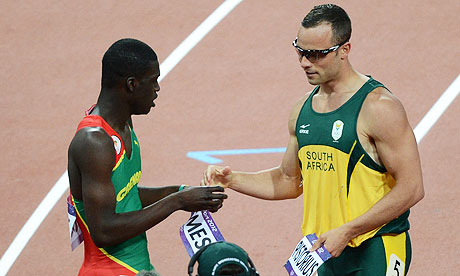

When news broke that Pistorius had shot his girlfriend to death, I shared the horror of the rest of the world--and also the sense of betrayal. But why betrayal? Who was Oscar Pistorius anyway, except someone who wanted to be a star athlete, who also happened to have no legs below the knee? His qualifications for fame had nothing to do with character.
Even those who are elevated to hero status based on their good deeds reveal themselves to be fallible human beings. Greg Mortenson, the co-author of the bestselling Three Cups of Tea, a tale of utter selflessness in the pursuit of improving the lives of the children of Pakistan and Afghanistan, seems to have fabricated sections of his book and misappropriated donor funds for personal use. His demise was documented on 60 minutes, he was eviscerated by Jon Krakauer, and the public outrage likely led, at least indirectly, to the suicide of his co-author.
Herein lies the trouble with hero worship: it elevates people beyond the status of human beings to demigods. We expect them to live better lives than we do because they have inspired us--they should not give in to lust, greed, laziness, self-promotion, addiction, envy, because we conceive of them as somehow superhuman--and when they fall, we cannot excuse it.
We imagine those in the spotlight, who have accomplished extraordinary things, to be made of different material from the rest of us. The truth is that there are no demigods--just people like us. It can be frightening to acknowledge, but it can also be liberating, for instead of relying on others to fulfill our demands for greatness, we can recognize the same power within ourselves.
No comments:
Post a Comment